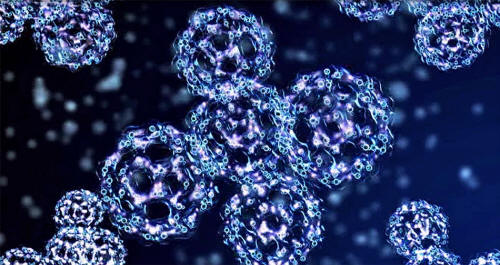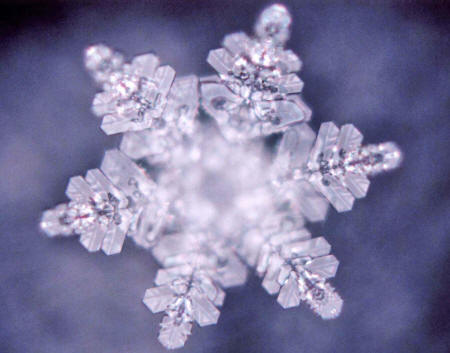|

by Joe Martino
December 20, 2015
from
Collective-Evolution Website

I remember sitting in the car driving into downtown Toronto with
this really odd feeling in my gut - a mix of excitement and
curiosity.
We were heading to an interview that I
had been looking forward to for a long time. Of course, finding
parking in Toronto is always an interesting challenge. Row after
row, street after street, trying to find a spot that isn't a one
week walk away from your destination (and that also doesn't cost you
an arm and a leg) to leave your car for a few hours is, to put it
mildly, pretty difficult.
After an exhaustive search, we found that elusive not-too-far and
not-too-costly spot.
We got out of the car and began walking
under the grey, cool sky towards the hotel where we were going to be
interviewing Dr.
Masaru Emoto - the man who
claims that water contains memory and that our consciousness
can impact it.
He was in town for a speaking event and
we had the chance to privately interview him for a couple hours,
offering us the amazing opportunity to hear about his work
firsthand.
At this time, his research was finally
being recognized in a big way by the mainstream and he was going to
be having some very interesting high level conversations about it to
move it forward. He was right on the verge of taking his work to a
whole new level.
Just a few short weeks later, he passed away, on the cusp of his
success...
Having sat with him in what very well may have been his last
interview, I later thought to myself how disheartening it was that
he died just before seeing his work truly flower. I really wanted to
see his work fully explored at an open-minded level which would
allow for wonder and intrigue to exist in a study that could
transform the way we view our reality.
You see, the scientific world has a culture which, inherently, has a
difficult time accepting work like this.
Why? Because things like this are hard
to measure, and when we can't fully measure and understand something
in our modern scientific world, we are often afraid to study
it and put our names on it.
The unfortunate reason for this is that
materialistic science has simply become the new religion
of today, in a number of ways.
While that has provided a plethora of
amazing insights and wisdom, it also limits our understanding of our
world by disregarding things that may exist that we simply don't
understand yet or can't access physically.
Emoto shared his thoughts on all of this as we interviewed him.
Although he had received much ridicule
from mainstream science for his work, the deeper spiritual
understanding that came from his research helped him to stay humble
and open to the transformation in the way people viewed his work as
an inevitable part of the future.
And he was right there… it was ready to
take off for him.
Thankfully, people have been inspired by his work and have expanded
upon it to find some amazing things about the data and information
water carries.
New research from the Aerospace Institute of the University of
Stuttgart in Germany supports the theory that water has a memory.
This idea was first coined by French immunologist Dr. Jacques
Benveniste in
a controversial article published in
1988 in the journal Nature as a way of explaining how homeopathy
works.
Later, others, including Dr. Emoto, took
their hands and theories to this idea, all of which also proved
controversial.
But recently another breakthrough has been brought forth and it
comes with very interesting, reproducible results. The video clip
below, from the Oasis HD Channel, shows some fascinating recent
experiments involving water and memory.
It comes from the Aerospace Institute of
the University of Stuttgart in Germany.
Although all aspects of the research you
are about to see are intriguing, one thing that really struck me is
the bit about different types of flowers being immersed in water and
how the water keeps memory of that.
Would this perhaps lend credence to the
homeopathy theory?
More On
Emoto's Work
This is an excerpt taken from an article we published on March 2014
by Arjun Walia titled "If
Human Thought can do this to Water - Just Imagine what it Can Do to
Us."
"The experiment I'm using in this
article was conducted by Dean Radin, Ph.D. (Double-Blind
Test of the Effects of Distant Intention on Water Crystal
Formation), who is the Chief Scientist at IONS and
Adjunct Faculty in the Department of Psychology at Sonoma State
University.
The experiment was done to measure
how intention alone affects water crystal formation.
Co-Investigators were Masaru Emoto, a Japanese energy scholar
and author, along with a few other researchers and scientists.

The experiment tested the hypothesis
that water exposed to distant intentions affects the aesthetic
rating of ice crystals formed from that water.
Basically, it tested whether
intentions could influence the physical structure of water (as
mentioned earlier). Over a period of three days, approximately
2000 people in Austria and Germany focused their intentions
towards water samples that were placed inside an
electromagnetically shielded room in California.
Other samples were located outside
of the shielded room so that they could act as a distant
control. Ice drops formed from multiple samples of water in
different treatment conditions were photographed by a
technician.
Each image was assessed for
aesthetic beauty by over 2,500 independent judges and the
results of the data were analyzed by individuals who were blind
with respect to the treatment conditions.
Results showed that the test was consistent with a number of
previous studies suggesting that intention may be able to
influence the structure of water."
|



